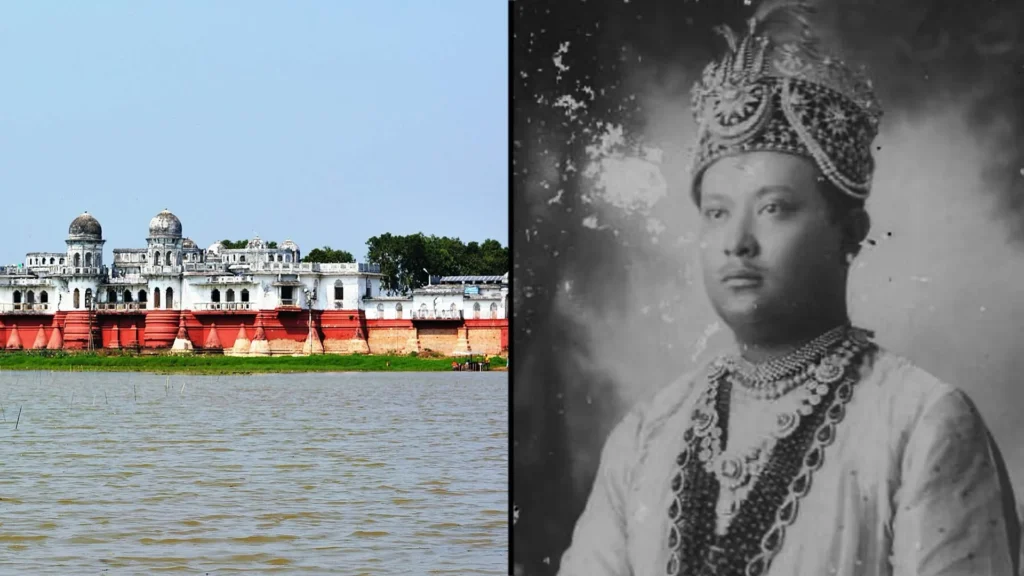Maharaja Bir Bikram Kishore Manikya Bahadur is often regarded as the father of modern Tripura, a title he earned through his visionary leadership and forward-thinking approach during his reign. As the last ruling king of Tripura before its integration into the Indian Union, Maharaja Bir Bikram was instrumental in shaping the socio-economic and cultural landscape of the state. His contributions to education, infrastructure, and the welfare of his people have left a lasting legacy, making him one of the most revered figures in Tripura’s history.
Early Life and Accession to the Throne
Born on August 19, 1908, Maharaja Bir Bikram Kishore Manikya belonged to the Manikya dynasty, one of the longest-reigning royal families in India. The dynasty traces its lineage back over 500 years, ruling the northeastern kingdom of Tripura. Bir Bikram was the eldest son of Maharaja Birendra Kishore Manikya, the then-reigning monarch, and grew up in the royal palace, receiving a modern education, including studying at the prestigious Mayo College in Ajmer.
In 1923, at the young age of 15, Bir Bikram Kishore Manikya ascended to the throne following the untimely death of his father. Despite his youth, he quickly demonstrated a commitment to modernizing his kingdom and improving the lives of his people. Over the next two decades, his reign marked a period of tremendous progress and reform in Tripura, earning him widespread respect both within the state and beyond.
Modernizing Tripura: Visionary Reforms
Maharaja Bir Bikram Kishore Manikya’s reign is often described as a golden era in Tripura’s history. He is credited with initiating several transformative reforms that laid the foundation for the state’s modernization.
1. Infrastructure and Urban Planning: One of Maharaja Bir Bikram’s most notable achievements was his focus on infrastructure development. Recognizing the need for better connectivity, he spearheaded the construction of roads, bridges, and modern public buildings. His crowning achievement in this regard was the establishment of Agartala, the capital city of Tripura, as a planned urban center. He designed the city with wide roads, administrative buildings, and residential areas, ensuring that it could accommodate future growth. This vision earned him the title of the “Architect of Modern Agartala.”
2. Establishment of Tripura’s First Airport: Maharaja Bir Bikram also took significant steps to improve Tripura’s connectivity with the rest of India. In 1942, he played a crucial role in the construction of Tripura’s first airport, now known as the Maharaja Bir Bikram Airport in Agartala. This move was not only visionary for the time but also strategically important during World War II, as it allowed for greater military and civilian mobility in the region.
3. Educational Reforms: A staunch believer in the power of education, Maharaja Bir Bikram established several educational institutions to promote literacy and learning among his subjects. He founded the Maharaja Bir Bikram College in 1947, which continues to be one of the most prestigious institutions in Tripura. His policies encouraged the education of both boys and girls, making education more accessible to the masses, particularly among the tribal population.
4. Welfare of Tribal Communities: Maharaja Bir Bikram was deeply committed to the welfare of Tripura’s indigenous tribal communities, who formed a significant portion of the state’s population. He introduced land reforms that ensured tribal land rights, protecting their ancestral lands from encroachment by non-tribal settlers. His policies promoted social harmony, and his efforts to uplift marginalized groups earned him the respect and admiration of the tribal communities in the region.
Integration with India
Maharaja Bir Bikram Kishore Manikya’s reign came at a critical juncture in Indian history, as the country was on the brink of independence. His forward-thinking approach ensured that Tripura transitioned smoothly from a princely state to becoming a part of the Indian Union. Though Maharaja Bir Bikram passed away unexpectedly in 1947 at the age of 39, it was under his leadership that Tripura laid the groundwork for integration with India.
In 1949, two years after his death, the Tripura Merger Agreement was signed, and Tripura officially became a part of the newly independent Republic of India. His widow, Maharani Kanchan Prabha Devi, played a significant role in facilitating the merger, continuing his legacy of responsible leadership.
Legacy of Maharaja Bir Bikram Kishore Manikya
Maharaja Bir Bikram’s impact on Tripura is still visible today. From the city of Agartala, which he helped shape, to the airport and educational institutions he founded, his contributions have endured the test of time. His commitment to modernization, education, and tribal welfare has left an indelible mark on the state’s history.
In recognition of his visionary leadership, several landmarks in Tripura bear his name, including the Maharaja Bir Bikram College and the Maharaja Bir Bikram Airport. His life and legacy are celebrated annually in Tripura, where he is remembered not only as a ruler but also as a reformer who transformed the state for the better.
Maharaja Bir Bikram Kishore Manikya remains a towering figure in Tripura’s history, remembered for his progressive reforms, dedication to education, and commitment to the welfare of his people. As the last king of Tripura, he paved the way for the state’s integration into modern India, leaving behind a legacy that continues to inspire generations. For the people of Tripura, he is truly the “Father of Modern Tripura.”

